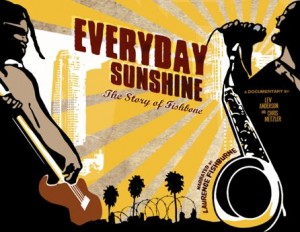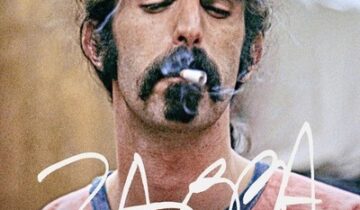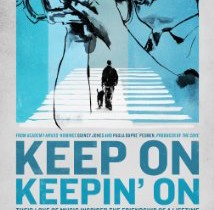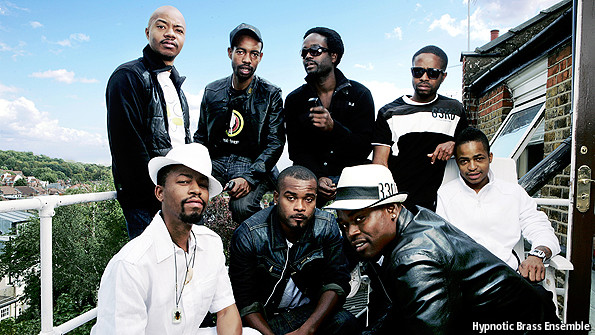 For the ECONOMIST: “EVERYDAY Sunshine: The Story of Fishbone”, a recent film by Lev Anderson and Chris Metzler, is a fly-on-the-wall documentary about Fishbone, a funk, ska, metal, punk and reggae band from Los Angeles. They rose to fame in the late 1980s but have spent the past two decades in obscurity, bouncing from one small label to another, and with an ever-changing line-up of band members. With hits that once topped Billboard charts, and an experimental style that inspired acts such as the Red Hot Chili Peppers and No Doubt, Fishbone always seemed on the cusp of fame. But despite a devoted following and some international renown, they never made it big. Why?
For the ECONOMIST: “EVERYDAY Sunshine: The Story of Fishbone”, a recent film by Lev Anderson and Chris Metzler, is a fly-on-the-wall documentary about Fishbone, a funk, ska, metal, punk and reggae band from Los Angeles. They rose to fame in the late 1980s but have spent the past two decades in obscurity, bouncing from one small label to another, and with an ever-changing line-up of band members. With hits that once topped Billboard charts, and an experimental style that inspired acts such as the Red Hot Chili Peppers and No Doubt, Fishbone always seemed on the cusp of fame. But despite a devoted following and some international renown, they never made it big. Why?
“Everyday Sunshine” doesn’t answer this question explicitly. But it makes a strong case that this group of black men with Mohawks, who slam-danced and sang about racism and politics, was uniquely difficult to classify, which made them difficult to promote. The were “a bunch of young guys that fit in everywhere and nowhere at the time,” says Mr Metzler, which perhaps confused the mostly-white record executives.
But the story may be more complicated. The film, which chronicles the familiar highs and lows of band life—the egos, arguments, group-therapy sessions and loyal fans—also shows a great deal of discord within Fishbone. The band may have simply argued too much, and lacked a clear leader. Members quit, and their guitarist defected to a religious cult in northern California. Only two of the original members remain: Norwood Fisher, a bassist, and Angelo Moore, a lead singer and saxophonist, whose album “The Angelo Show” will be released later this month (through MooreMapp Records).
As the band gears up for a big tour across America, Mr Fisher spoke to The Economist about making the film, the challenges of race and the future of Fishbone.
Why did you agree to star in a documentary about your life?
I personally was not for this. I viewed band docs as something you do at the end, signalling you’re an old-ass band and it’s over. Angelo saw it as an opportunity. They [the directors] had done another film about the Salton Sea [narrated by] John Waters and that bowled me over. I was like, they gotta be cool if they got John Waters.
What does the film mean to you?
I look at it and say, well that’s my life. It speaks as it was. Now life is different. Now there’s a resurgence because of the film and we have a new record. We actually have a record label pushing the band, an awesome management company, and a lot of old fans saying “I haven’t seen you since 1989”. All of these people are coming out of the woodwork.
So many bands are reuniting; is Fishbone now another reunion band?
We never had the complete media bombardment of a band like, say, the Police. We remain in the underdog position fighting to win. The underdog wins the hearts and minds of the audience. We’re very different to Van Halen.
The film argues that Fishbone’s democratic approach to decision-making was its downfall. Is that true?
Yes. We would have benefited from someone steering us in a direction. We began like a squeaky wheel. Whoever screamed the loudest, the biggest asshole, got the most attention. Sometimes amazing opportunities got pissed down the tube.
How much has race been an issue for Fishbone?
We came up in America in the ’80s, when the music industry was segregated in a lot of ways. That was a cultural conditioning of whatever came 500 years before now. Fishbone came into a major label, where everything was cookie-cutter, and we confused the hell out of everybody.
Why do you think you confused record executives?
The colour of our skin and our complex arrangements. What we were singing about, people must have been thinking, “What do we do with this band?” The Clash were a huge inspiration, and we weren’t really that much different from them. But nobody could look at The Clash and do the same with us.
Do you feel the same way today about playing music as you did when Fishbone started?
I’m living the dream. Just to play music. I wanted to do that since 1971. It’s the coolest thing you could possibly do with your life. What could be cooler?
“Everyday Sunshine: The Story of Fishbone” is on DVD now.



